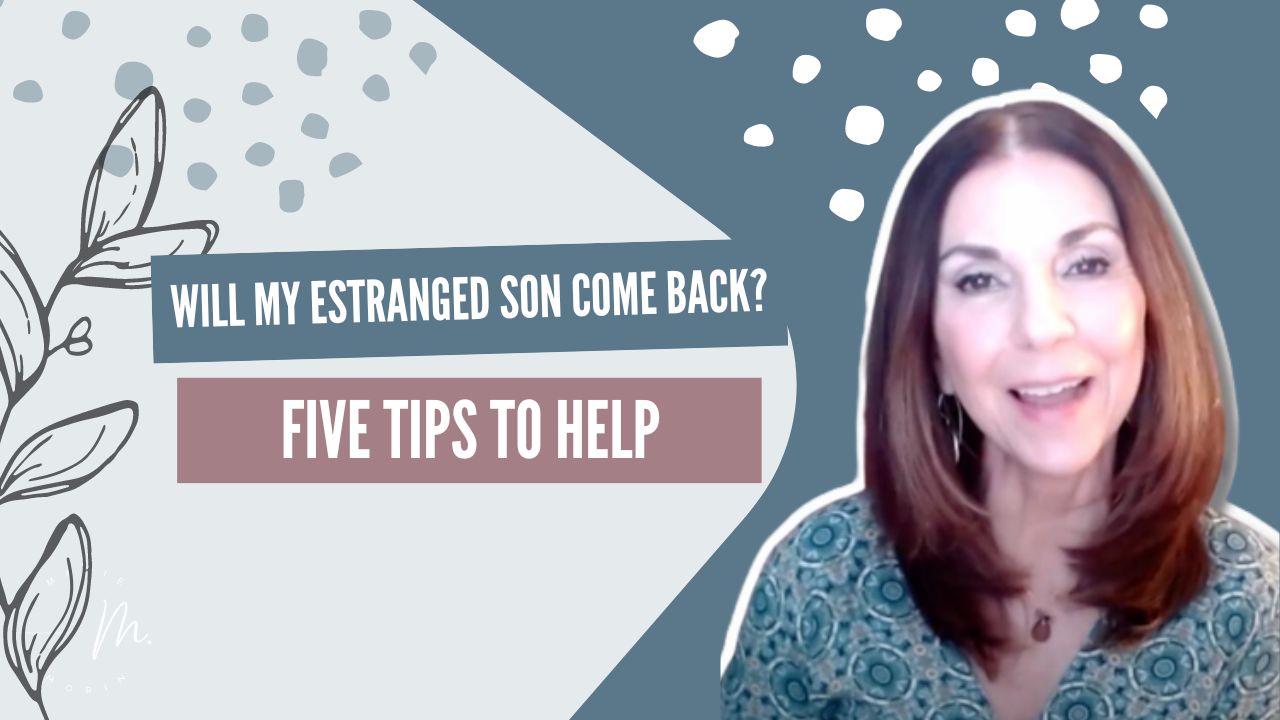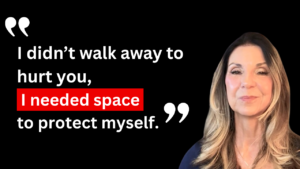For many parents, the relationship with their son is one of their most important and cherished bonds. However, when this relationship becomes strained or severed, it can be a heartbreaking reality that leaves parents feeling lost and alone. There are many reasons why adult sons may become estranged from their parents, ranging from differences in values and beliefs to trauma or abuse. In this article, we’ll explore the factors that can contribute to this kind of estrangement and provide helpful tips for parents looking to rebuild their relationship with their estranged son.
Numerous factors can contribute to an adult son becoming estranged from his parents. These factors include personal values and beliefs, trauma or abuse, parental control or criticism, family conflict, and lifestyle differences. Additionally, a toxic spouse can also be a significant contributor to an estranged relationship. In this section, we’ll dive deeper into these various factors and explore how they can impact the relationship between adult sons and their parents.
1. Parental control or criticism:
One factor contributing to adult-son and parental estrangement is parental control or criticism. As sons grow into adulthood, they may seek greater autonomy and independence from their parents. However, if parents continue to control their son’s life, it can create tension and strain the relationship.
Additionally, if parents are overly critical of their son’s choices and decisions, it can create a sense of invalidation and erode the son’s self-esteem. This can lead the son to distance himself from his parents to protect his emotional well-being.
Parents need to recognize their adult son’s autonomy and allow them to make their own decisions, even if they don’t always align with the parent’s beliefs or values. Constructive feedback and support can be helpful, but constant criticism or control can push an adult son away.
2. Family conflict:
Family conflict can significantly contribute to estrangement between parents and adult sons. Divorce, remarriage, or other family events that cause tension or division can create long-lasting effects on relationships. For example, a son may feel caught in the middle of a bitter divorce or resentful of a new stepparent. Alternatively, parents may struggle to accept a son’s partner or lifestyle, causing friction and tension. These conflicts can lead to feelings of hurt, anger, or betrayal, ultimately leading to estrangement.
3. Personal values and beliefs:
Personal values and beliefs are a common reason adult sons may become estranged from their parents. As children grow and mature, they may develop beliefs and values that differ significantly from those of their parents. These differences can be related to various aspects of life, such as religion, politics, or lifestyle choices.
For example, a son who becomes an atheist may struggle to maintain a close relationship with deeply religious parents. Similarly, a son who identifies as LGBTQ+ may find it challenging to connect with parents who hold conservative views on sexuality and gender identity. In some cases, these differences can be so significant that they create a rift in the relationship, leading the son to distance himself from his parents.
4. Toxic spouse:
It’s not uncommon for adult sons to become estranged from their parents due to the influence of a toxic wife. In some cases, wives may actively isolate their husbands from their families, creating a rift in the relationship and making it challenging for the son to maintain contact with his parents. Toxic wives may use manipulation, control, or emotional abuse to keep their husbands from their families, making it difficult for them to attend family events or spend time with their parents. This kind of isolation can profoundly impact the relationship between adult sons and their parents, making it challenging to rebuild the relationship even after the toxic wife is no longer in the picture.
5. Lifestyle differences:
As sons transition into adulthood, they may develop lifestyles that differ from their parents. For example, they may pursue different career paths, engage in hobbies that their parents don’t understand or support, or have different values and beliefs that lead them to make different lifestyle choices. While these differences can be natural and healthy, they may also create distance between parents and adult sons.
If parents do not understand or respect their son’s lifestyle choices, it may cause friction in the relationship. This friction could manifest in several ways, such as parents expressing disapproval or actively trying to change their son’s behavior or decisions. Alternatively, the son may feel judged or misunderstood and distance himself to avoid further conflict.
Sometimes, lifestyle differences may also create logistical barriers to maintaining a close relationship. For example, if a son moves to a different city or country for work or school, it may be challenging for him to maintain regular contact with his parents. The physical distance and lifestyle differences can make it even more difficult to sustain a close relationship.
6. Trauma or abuse:
Trauma and abuse are unfortunately prevalent in our society, and they can have long-lasting effects on a person’s mental health and relationships. When a son experiences trauma or abuse, it can be challenging to maintain a relationship with the parent involved or unaware of the situation.
For some adult sons, the distance they create is a necessary boundary to protect themselves emotionally and mentally. In these cases, it may be crucial for parents to acknowledge their son’s experience and seek to provide support and resources to help their son heal. This may involve offering to help the son find a therapist or counselor, attending family therapy together, or simply being a supportive and understanding presence in their son’s life.
It’s important to note that these factors are not exhaustive, and each situation is unique. However, understanding some of the reasons adult sons may become estranged from their parents can help parents begin to work towards rebuilding their relationship.
Five Tips To Help Along The Way
- Give your son space:
It’s essential to give your son the time and space to process their feelings and decide whether or not they want to reconnect. Pushing too hard or being overly aggressive in your attempts to reconcile may drive your son further away.
- Acknowledge any wrongdoings:
If there were issues in the past that contributed to the estrangement, it’s essential to acknowledge them and take responsibility for any wrongdoing on your part. Acknowledging may involve apologizing, making amends, or committing to changes in your behavior moving forward.
- Keep the lines of communication open:
Even if your son isn’t ready to come back into your life immediately, keeping the lines of communication open is essential. Open communication may mean sending a friendly message or email periodically or contacting your son to offer support or help when needed, with no pressure added.
- Seek professional help:
If you’re struggling with the pain and stress of an estranged relationship, seeking professional help may be helpful. A therapist or counselor can provide guidance, support, and strategies for coping with the situation and improving communication skills.
- Focus on your growth:
While you can’t control your son’s decision to return to your life, you can work on your growth and self-improvement. Self-improvement involves:
- Exploring your emotions and reactions to the situation.
- Developing new hobbies or interests.
- Pursuing personal goals that bring you fulfillment and happiness.
Focusing on your own personal growth and well-being can be crucial in coping with the pain and uncertainty of an estranged relationship with your son. By taking care of yourself, you may find that you feel more fulfilled and happy, even in the absence of a close relationship with your son.
Conclusion:
Remember, rebuilding a relationship with an estranged son takes time, patience, and effort. While there’s no guarantee that your son will return, taking steps to improve communication, acknowledge any wrongdoings, and focus on your growth can help increase the likelihood of a successful reconciliation. This article discusses the factors that can contribute to parent and adult-son estrangement and provides helpful tips for parents looking to rebuild their relationships.








